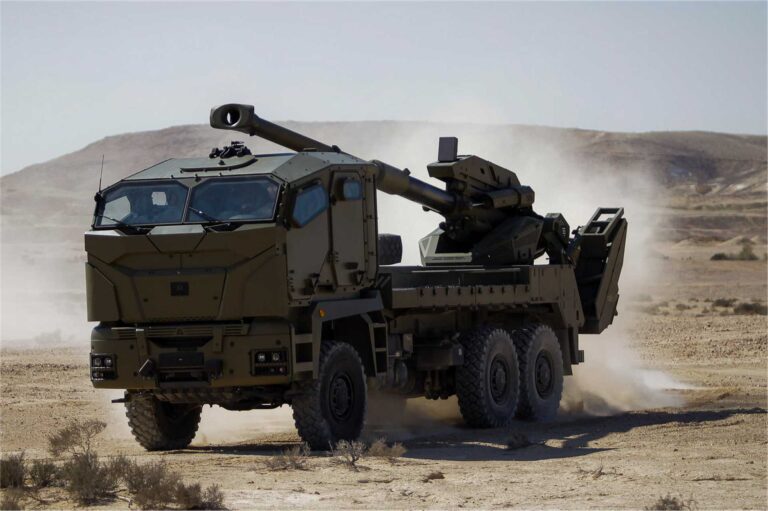Morocco Chooses Israeli ATMOS 2000 Howitzers Over French CAESAR Amid Growing Defense Ties
In recent months, Morocco has made significant strides in modernizing its military, particularly in its artillery capabilities. A notable development is the decision to procure Israeli ATMOS 2000 howitzers, opting for them over the French CAESAR. This choice reflects not only Morocco’s commitment to enhancing its defense infrastructure but also signifies the strengthening ties between Morocco and Israel.

Strengthening Defense Collaborations
The relationship between Morocco and Israel has evolved, especially following the normalization of ties in 2020. This newfound partnership has paved the way for various defense collaborations, with Israel becoming a crucial player in Morocco’s military modernization efforts. The decision to acquire the ATMOS 2000 is a direct result of these strengthening relations. According to the Stockholm International Peace Research Institute (SIPRI), arms transfers to Africa grew by 9.4% from 2016 to 2021, with a significant share attributed to Israeli exports.
The Advantages of ATMOS 2000
The ATMOS 2000 howitzer, manufactured by Israel’s Elbit Systems, is known for its impressive range and mobility. It can fire a variety of shells, including extended-range projectiles, making it a versatile addition to any artillery unit. With a maximum range of up to 40 kilometers, the ATMOS 2000 is capable of precision strikes and quick repositioning, crucial in contemporary warfare where adaptability is vital.
In comparison, the French CAESAR howitzer also boasts numerous advanced features but has faced criticism regarding mobility in specific operational scenarios. As military analysts have noted, the choice of artillery can significantly influence a nation’s operational success on the battlefield.

Broader Strategic Context
Morocco’s decision to enhance its military capabilities comes against a backdrop of regional instability and security challenges. The North African nation has increasingly focused on bolstering its defense forces, particularly in response to perceived threats from neighboring Algeria and the ongoing Western Sahara conflict.
Data from Global Firepower’s 2023 analysis highlights Morocco’s military as the 57th strongest in the world, with an impressive military budget reaching approximately $10 billion. This budget allows for the modernization of equipment and training of personnel, enhancing its overall military readiness.
Economic Implications
The acquisition of the ATMOS 2000 howitzers is not only a strategic military decision but also an economic one. Deeper collaboration with Israeli defense manufacturers can lead to potential joint ventures, technology transfers, and investment opportunities in Morocco. This aligns with Morocco’s broader strategy to develop a self-sustaining defense industry.
According to estimates, the defense market in Africa is expected to reach $40 billion by 2025, and countries like Morocco are positioning themselves to capture a share of this growth. Investing in modern military equipment like the ATMOS 2000 not only prepares Morocco for the challenges ahead but also supports its aspirations to emerge as a key player in regional defense manufacturing.

Conclusion
Morocco’s decision to procure Israeli ATMOS 2000 howitzers over French CAESAR models underscores a pivotal moment in its military evolution and foreign relations. As defense ties with Israel continue to strengthen, Morocco is likely to benefit from enhanced technological advancements and strategic partnerships.
The choice of the ATMOS 2000 signifies not only a preference for advanced artillery systems but also highlights Morocco’s proactive stance in addressing security challenges. As military modernization efforts continue, Morocco’s position in the North African defense landscape is set to become increasingly influential. The implications of these developments will resonate across the region, influencing military strategies, partnerships, and security dynamics for years to come.
As the world watches Morocco’s military evolution, it becomes evident that the nation is committed to securing its borders and asserting itself as a formidable force in North Africa, paving the way for greater stability and strategic partnerships in the future.



